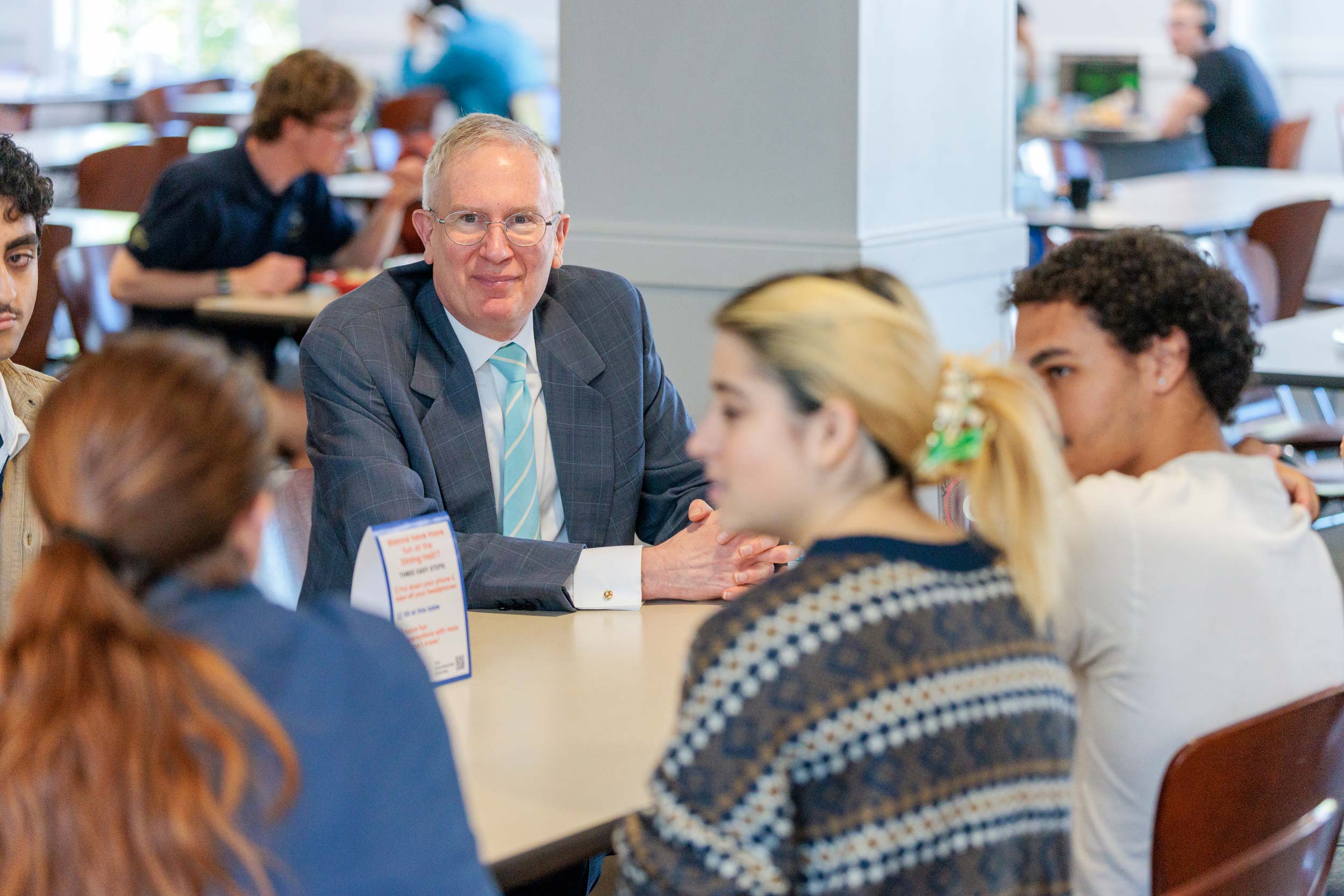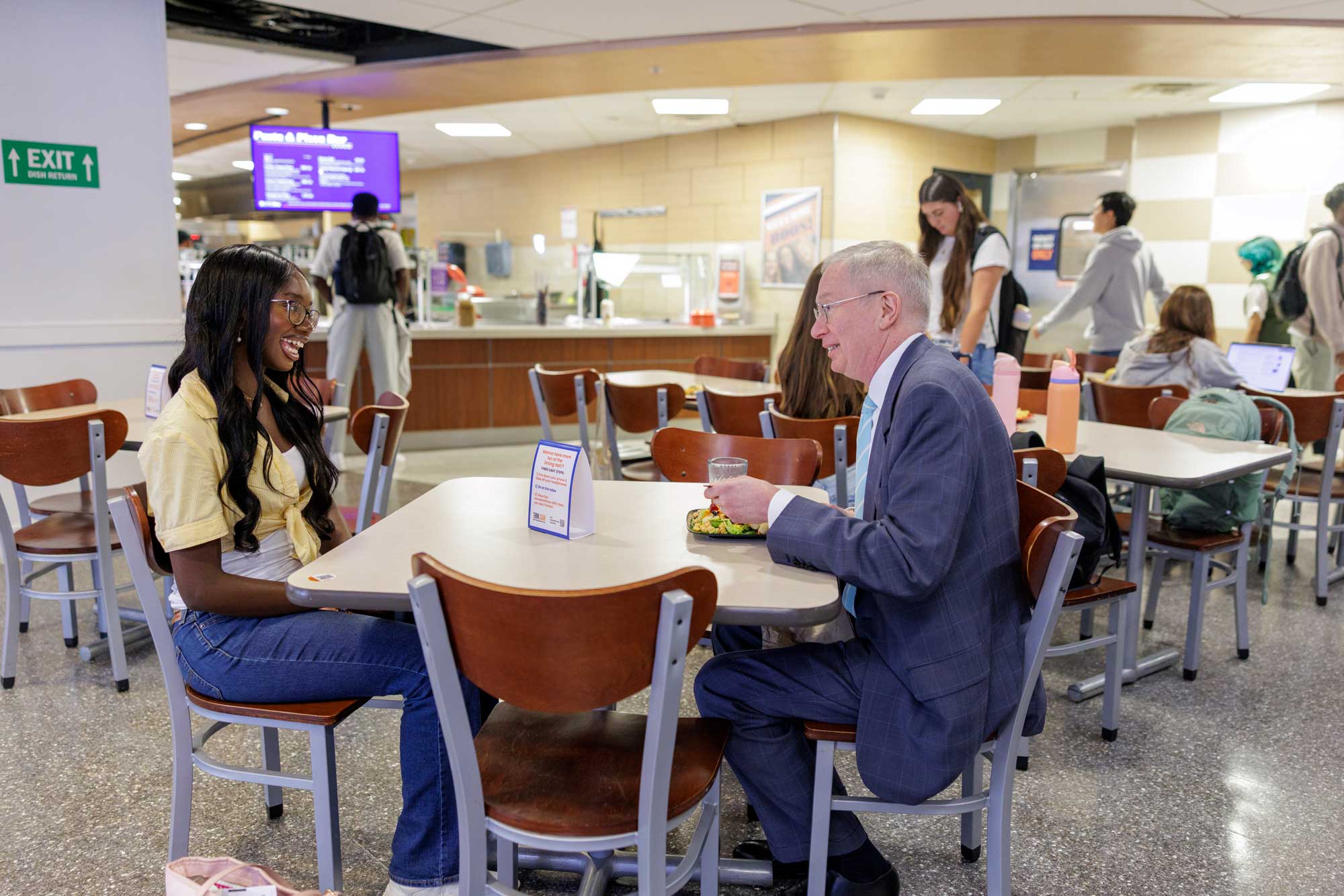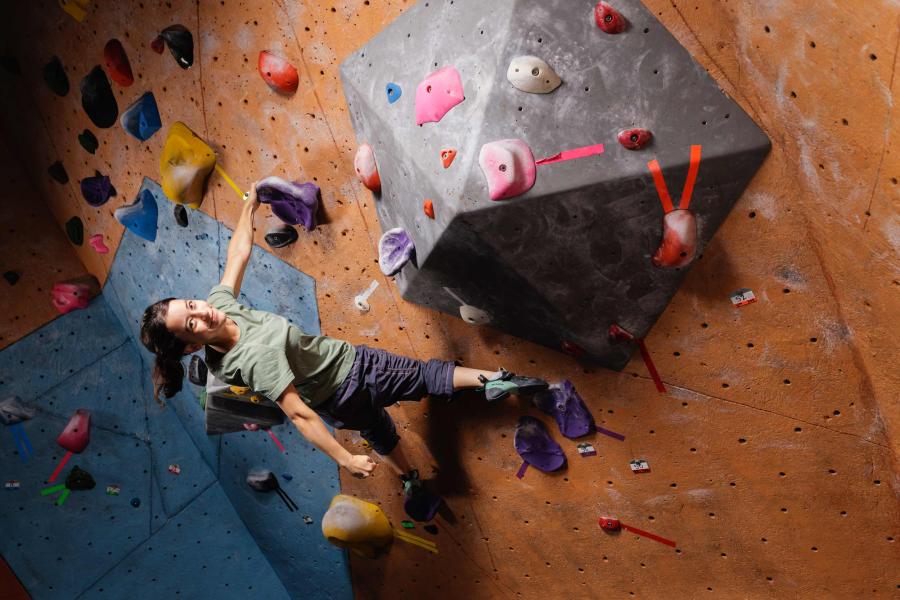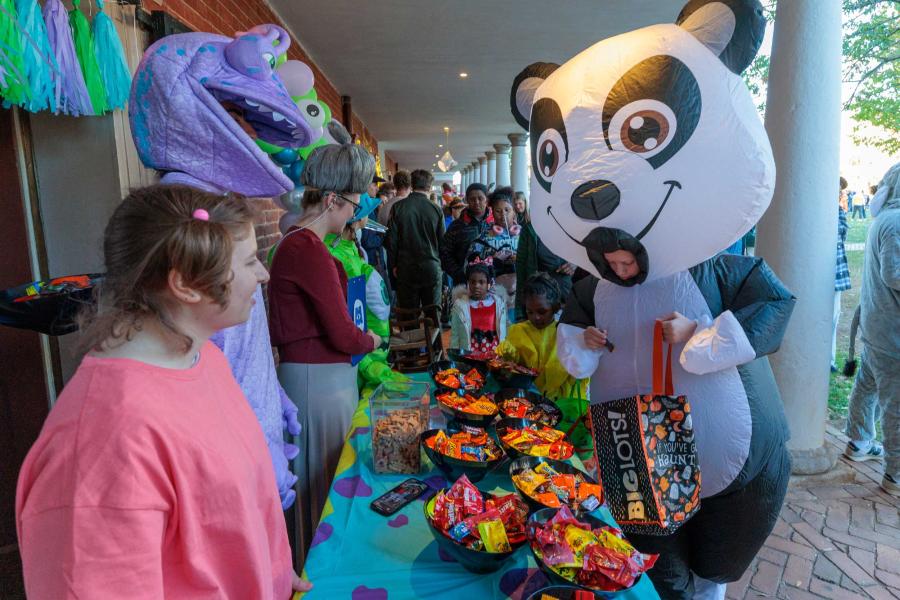When Kiro Ibrahim saw University of Virginia’s interim President Paul Mahoney sit at a Newcomb Dining Hall table, the second-year student sensed a chance.
On his mind was the Trump administration’s Compact for Academic Excellence in Higher Education, a controversial idea that would give UVA and eight other colleges priority for federal funding if the schools agreed to align with White House priorities.
But after a few moments, Ibrahim decided he could better use this fleeting opportunity to have a different conversation.
“He’s just a person, same as me,” said Ibrahim, who lives in Richmond but is from Egypt. “And I was like, ‘I would really like to know who he is.’ I feel like I learned a lot about who he was before being the interim president.”
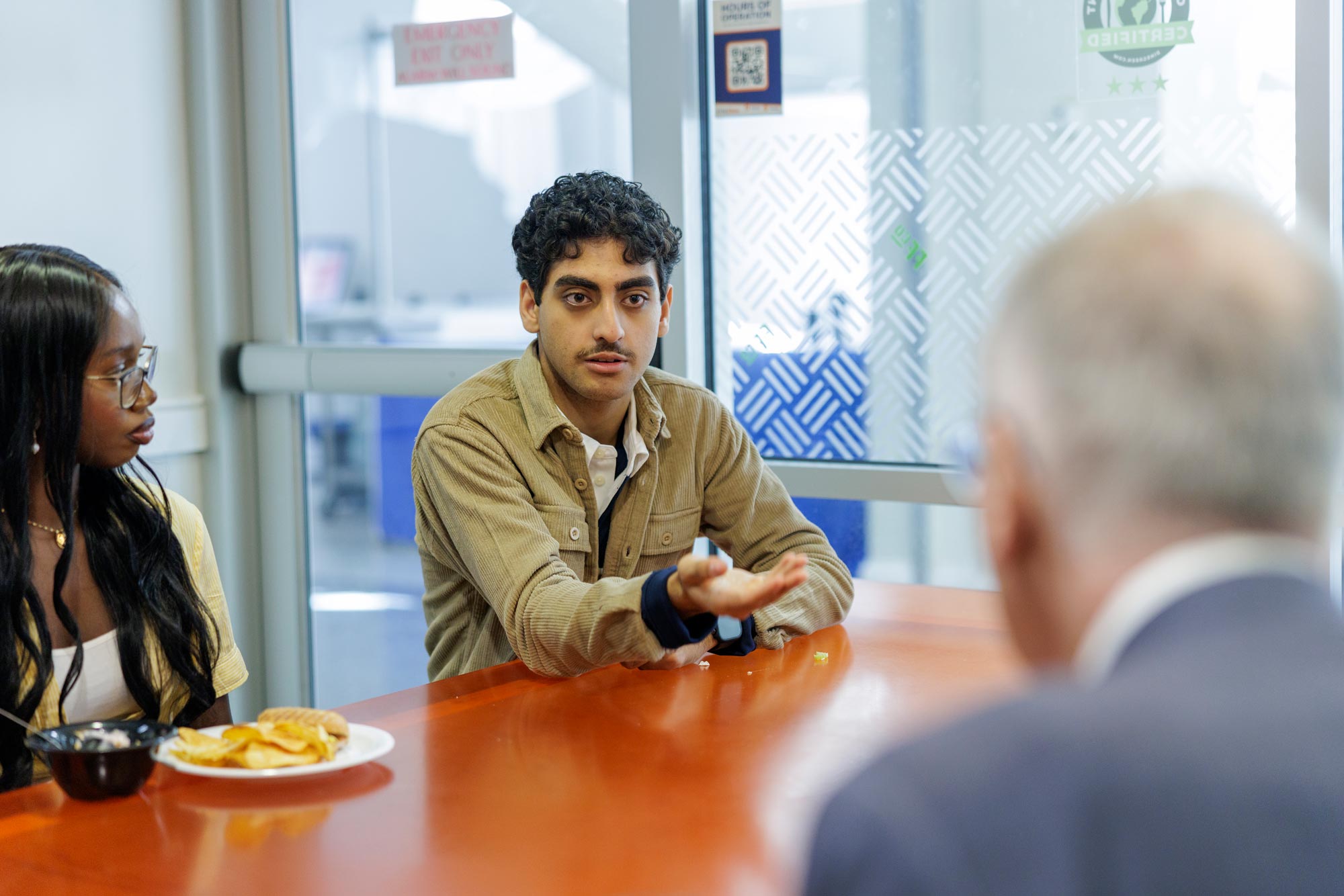
Second-year student Kiro Ibrahim chats with Mahoney during lunch. He said they talked about sports, college affordability and hiking. (Photo by Lathan Goumas, University Communications)
He and Mahoney chatted about sports, the president’s law background, how important it is to keep UVA affordable, and where to go hiking in the area. Mahoney is an avid hiker. “He gave me a few recommendations of hiking spots, like Skyline Drive and Humpback Rock,” Ibrahim said.
That’s exactly the idea behind the president’s office’s new initiative called “Table Talk.” In UVA’s main dining halls, a few tables sport table tents that ask students to take off their headphones, put down their phones and strike up a conversation with a Hoo they don’t know.
“When people have a meal together, they’re just naturally more open with one another,” Mahoney said. “This is a great opportunity for students to meet people they might not otherwise meet, and form friendships they might not otherwise ever form.”
Table Talk is an extension of one of Mahoney’s top goals as UVA’s interim leader. He prizes engaging conversations in general and especially talking civilly across differences. College, he has said, is one of the few places where young adults will be surrounded by so many different kinds of people, and learning from them is a foundation of the UVA experience.
